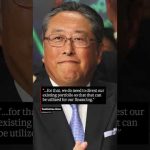When Harvard astrophysicist Dr. Avi Loeb sat down with Greta Van Susteren on The Record, he spoke plainly about what too many in the scientific establishment try to dismiss with a shrug: the universe is vast, and it would be arrogant to assume we are the only intelligence out there. Loeb used the spotlight to connect that cosmic modesty to a very specific incident—the interstellar visitor 3I/ATLAS—urging Americans and their leaders to take the phenomenon seriously instead of reflexively minimizing it.
The object in question, officially cataloged as 3I/ATLAS after being picked up by the ATLAS survey, was first reported on July 1, 2025 and tracked through pre-discovery images dating back to mid-June. NASA has confirmed the comet-like visitor reached perihelion around October 30, 2025 and will never come closer than roughly 1.8 astronomical units to Earth, so the immediate danger to our cities is not the headline—what matters is the mystery it presents.
Loeb didn’t whisper theories into the void; he laid out concrete anomalies—unusual brightness, strange tails and behaviors that differ from typical comets—and asked the reasonable question: what if this is not just another rock? He proposed that these oddities, combined with our poor ability to intercept fast interstellar visitors, should compel a sober national conversation about monitoring, rapid-response capabilities, and even using existing spacecraft for reconnaissance if feasible.
Before anyone panics, the official word from NASA’s planetary-defense teams is comforting: 3I/ATLAS poses no impact threat to Earth and its passage has been an unprecedented scientific opportunity rather than a calamity. Still, official reassurances don’t excuse complacency; every generation of Americans has been safer when leaders demanded transparency, funding, and readiness instead of leaving critical decisions to bureaucrats who prefer to avoid hard questions.
This is where politics and patriotism should meet science: we can respect expertise while demanding accountability. If a tenured Harvard professor is willing to buck consensus and say out loud what many are thinking, conservative Americans should champion open inquiry, robust space defense, and a skeptical eye toward any cover-up or groupthink from the coastal elites. The question isn’t whether to be afraid—it’s whether we will be prepared, informed, and honest with the American people about what we know and what we don’t.




